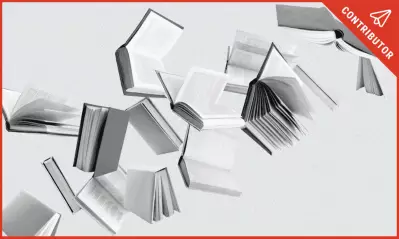College of Education
Online bachelor's of education degrees
Prepare to launch your teaching career
The formative years are the most important for children’s education. You can be a part of helping inspire and guide children as they discover learning and personal growth during this critical period. Explore online bachelor’s of education degrees to prepare you for a teaching career focused on early childhood and elementary school age students. When you begin the Bachelor of Science in Education in Education/Elementary Teacher Education or Bachelor of Science in Education/Early Childhood Education programs, it allows you to develop teaching strategies specifically designed to guide students from pre-school to elementary school. Teaching-focused bachelor’s education degrees help you prepare for teaching licensure. If you live in California, the Bachelor of Science in Liberal Studies program can prepare you for a multiple-subject teaching credential.
Let's get started
Find the online bachelor’s of education degree that fits you
*Bachelor of Science in Liberal Studies degree program requires 121 credits and has a published program length of 4 years and 1 month. A student’s actual time to completion will depend on various factors specific to the individual, including transfer credits, retaking courses, and breaks from coursework.
Skills you’ll develop with core bachelor’s education degree courses
Bachelor of Science in Education/Early Childhood Education
- Instructional practice
- Professionalism
- Ethical practice
- Learner development
- Innovation
Bachelor of Science in Education/Elementary Education
- Instructional practice
- Professionalism
- Ethical practice
- Learner development
- Innovation
Bachelor of Science in Liberal Studies (California ONLY)
- Teaching
- Professionalism
- Leadership
- Learning strategies
- Innovation
Earn career-relevant skills in weeks – not years
Learning shouldn’t take years to put into practice. That’s why we’re empowering you to build career-relevant skills with every five- to six-week course.
We’ve worked with a labor market researcher Lightcast to identify in-demand skills for occupations and mapped those to our bachelor’s and master’s degree programs.

Outlook for workers with an online bachelor’s of education degree
Bachelor’s of education degree course requirements
Bachelor of Science in Education/Elementary Education
You’ll have 20 core courses of program-specific knowledge and a full time clinical practice/student teaching component to help you build the skills, competency, and confidence to teach elementary school children. These core courses include topics like childhood development, elementary methods: reading/language arts, elementary methods: mathematics and more.
Bachelor of Science in Liberal Studies (California only)
You’ll have 14 core courses of program-specific knowledge and a clinical practice/student teaching component to help you build the skills, competency, and confidence to teach children. These core courses include topics like elementary models: reading and language arts, instructional methods for English language learners, classroom management and more.
Bachelor of Science in Education/Early Childhood Education
You’ll have 19 core courses of program-specific knowledge and a clinical practice/student teaching component to help you build the skills, competency, and confidence to teach children. These courses include subjects like foundation of early childhood education, early childhood literacy development, methods of teaching in early childhood: mathematics and more.
Why earn an online bachelor’s of education degree?
- About 109,000 openings for kindergarten and elementary school teachers are projected each year, on average, over the decade.
- Online Bachelor of Education degrees prepare you for teaching licensure in many states. Learn more about state licensure requirements.
- As a teacher, you can become a critical part of your community with the privilege of helping the early learning of young children.
Why us for your online bachelor’s of education degree?
Classroom teaching experience
University of Phoenix requires an in-person, full time student experience teaching in the classroom as part of the curriculum. It’s one of the final steps to completing your bachelor’s degree. You’ll complete a student teaching experience where you will apply your instruction and classroom management skills, full time. Working under the supervision of a teacher and a University of Phoenix faculty supervisor, you’ll develop lesson plans, teach, work with diverse student populations, and incorporate technology into the classroom. You are given the opportunity to complete your clinical hours and your student teaching in a local school district or placement. For BSED/ECH daycare or comparable learning settings are acceptable.

Ready to get started?
Start your application for free or request additional information.

Help with your program requirements
Your dedicated education program specialist works 1:1 with you directly during your 100 required hours of clinical experience (or more if required by your state) and a minimum of 12 weeks of clinical practice (or more if required by your state). Other ways education program specialists can help include:
- Assistance navigating your state licensure requirements and application for certification.
- Help identify placement sites for your clinical experience and clinical practice.
Access to College of Education Central
Support for your online bachelor’s education degree also includes helpful resources available to you on COE Central. What you can find on COE Central:
- Guidelines for professional expectations
- Details on clinical experiences
- Information on your classroom clinical practice
- Internships guidelines
- Access to the edTPA assessment and support system used by teacher preparation programs throughout the United States to emphasize, measure and support the skills and knowledge that all teachers need to start their careers
- Milestone roadmaps
- Technology and multimedia resources
- Toolkits for your teaching degree and career
Why is teacher licensure important?
Before becoming a early childhood or elementary school teacher, you must demonstrate the skills and knowledge needed for effective classroom practice. Licensure provides the professional and public assurance that educators have met your state teaching standards and have demonstrated their readiness to teach.
Review your state licensure requirements
Every state is different when it comes to state licensure. Learn more about your state licensure requirements.
Ways to pay — and save. Explore your options.
From scholarships to transfer credits and federal financial aid for those who qualify, there are a variety of ways to pay for school and save on tuition.
Student experience
Over 1 million alumni have earned their degrees while balancing work, school and life. So can you.
How to apply for your bachelor’s education degree program
After selected your degree program, choose your start date from our calendar, apply for free and register before the deadline (usually one week before the program starts). Then you’ll speak to an enrollment representative to begin class.
- No SAT, GMAT or essay required
- No application fee
- Our risk-free trial lets eligible students try out University of Phoenix for three weeks with no financial obligation

Meet your college deans
Our college deans focus on developing a career-relevant curriculum. They bring industry experience to the classroom and lead a faculty of academic professionals with one goal in mind—to help you earn the skills you need to pursue your career.

Pamela Roggeman, EdD
Dean, College of Education

Lisa Ghormley, MEd
Associate Dean, College of Education
Accreditation
Accredited for 45+ years
Since 1978, University of Phoenix has maintained institutional accreditation by the Higher Learning Commission (HLC), hlcommission.org. Learn more about the value of University of Phoenix accreditation and how it benefits our students.
FAQ about bachelor's of education degrees
The published program length for an online bachelor’s in education is four years. Other factors, such as the number of eligible credits you can transfer toward your program and whether you take breaks from your program you could complete your degree in more or less time.
- Bachelor of Science in Education/Early Childhood Education: published program length 4 years
- Bachelor of Science in Education/Elementary Education: published program length 4 years
- Bachelor of Science in Liberal Studies: published program length approximately 4 years and 1 month
If you want to teach early childhood/kindergarten or elementary school students in a classroom setting, a teaching degree like our Bachelor of Science in Education in Early Childhood Education or Bachelor of Science in Elementary Education will help prepare you to enter and grow in the profession. See your state’s requirements to prepare for your future as a teacher.
Yes. If you’ve previously attended an accredited college, you may be able to transfer eligible credits that could apply toward your degree requirements. An enrollment representative can answer your questions about which credits may be transferred.
There are even more ways to save time and money on your degree including scholarships, or you may be eligible for reduced tuition, tuition assistance or other benefits through your employer. Learn more with the Savings Explorer Tool.



